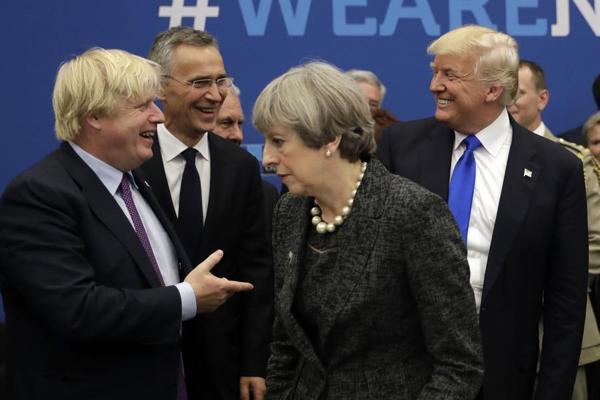Johnson Brexit letter offers no alternatives to Irish backstop: EU
BRUSSELS-Agence France-Presse


The EU on Aug. 20 rejected British Prime Minister Boris Johnson's demand to scrap the Irish border backstop plan to achieve a Brexit deal, saying he had offered no workable alternative.
Johnson wrote to EU Council President Donald Tusk on Aug. 19 to insist that Britain could not accept what he called the "anti-democratic" backstop, a mechanism to avoid border checks between EU-member Ireland and British-ruled Northern Ireland.
Since taking office last month, Johnson has been adamant Britain will leave the EU on October 31 come what may and has stepped up preparations for a chaotic "no deal" departure that would cause major economic disruption.
But the European Commission, the EU executive which has led Brexit negotiations with London, dismissed the proposal in Johnson's letter that the backstop could be replaced with a "commitment" to find "alternative arrangements".
"The letter does not provide a legal operational solution to prevent the return of a hard border on the island of Ireland," commission spokeswoman Natasha Bertaud told reporters.
"It does not set out what any alternative arrangements could be, and in fact it recognises there is no guarantee that such arrangements will be in place by the end of the transitional period."
Brussels insists that the backstop -- which would keep the UK in EU customs arrangements to prevent a hard border on the island of Ireland -- is essential to preserve the integrity of European trade and to avoid risking a return of sectarian violence in Northern Ireland.
Tusk himself took to Twitter to give a robust response to the hard line struck by Johnson's government in recent weeks.
"The backstop is an insurance to avoid a hard border on the island of Ireland unless and until an alternative is found," Tusk wrote.
"Those against the backstop and not proposing realistic alternatives in fact support reestablishing a border. Even if they do not admit it."
Critics say the backstop -- part of the Brexit divorce deal struck between the EU and Johnson's predecessor Theresa May which British MPs have rejected three times -- would keep Britain tied to EU rules potentially indefinitely.
